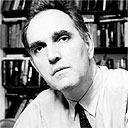
It was a final riposte to both "warts and all" biographers and condescending historians that Ben Pimlott wrote in hospital before he died. But the last words of the renowned biographer of the Queen, Harold Wilson and Hugh Dalton have caused a stir in the literary world as friends and rival biographers speculate over who the target is of the famously gentle professor's criticisms.
Pimlott, who died of leukaemia last month aged 58, called his treatise on biography Brush Strokes, comparing the biographer's task to that of a painter. The essay will be published later this year in Lives for Sale, a collection of writing by renowned biographers, to coincide with the launch of the Oxford Dictionary of National Biography.
According to his widow, Jean Seaton, Pimlott was critical of scholars such as Eric Hobsbawm, a good friend who dismissed the role of the individual in serious history, and biographies which combine hagiography with the salacious exposure of sex lives.
Some of those involved in Lives for Sale felt Pimlott's comments were directed against his fellow contributors, who include Michael Holroyd and the poet laureate Andrew Motion, whose biography of Philip Larkin examined the poet's sex life. A writer quoted anonymously in the London Evening Standard said "we can only speculate as to who he had in mind ... Andrew Motion?"
In his essay Pimlott wrote: "Because publishers, newspapers, agents are enthusiastic about biography, many writers - novelists, say, or poets with little biographical talent - try their hand, with embarrassing results. Many biographies are badly written, factually sloppy, and hagiographical."
But the suggestion that this was an implied criticism of Motion has horrified Professor Seaton, who said Pimlott was a great admirer of Motion and his ire was directed against other biographers. According to his widow, he was so infuriated by one recent biography that he refused to review it.
"Ben certainly doesn't mention Motion in his essay. He mentions EH Carr, Eric Hobsbawm and David Cannadine. He writes about the Cambridge school of hostility towards the individual in history. He was also very opposed to the warts and all hagiography which interminably witters on about people's sex lives."
Prof Seaton said her husband was critical of literary biographies that take the work of the person they are writing about for granted, "unlike political biographies, where you have to fight to demonstrate that what they did mattered. But Ben was a fantastic fan of Motion's biography of Philip Larkin. He thought it was a very tense piece of work."
Even as he lay dying, Pimlott, who won the Whitbread biography prize for his work on Dalton and defied the advice of Hobsbawm - who warned it would destroy his reputation as a serious academic to write a biography of the Queen - endeavoured to sketch out his final thoughts on the art of biography.
"I'd sit beside him while he wrote the essay," said Prof Seaton. "He wrote until he became so ill he could not sit up. He wrote a piece on the Hutton report for the Guardian with a temperature of 104." Although he did not have time to rewrite it his customary "10 times", Prof Seaton retrieved it from his laptop.
Measured
The Labour peer Kenneth Morgan, a biographer and historian, said that given Pimlott's illness, the essay may not be his friend "at his most normal and measured". But he said: "I am sure it will generate constructive arguments. I would be astonished if it was a mean-spirited attack on other authors. He was a very generous and fair-minded man. It was a tragic loss and this essay will show some of the things we have lost."
According to Mark Bostridge, the editor of Lives for Sale, Pimlott's final essay was not intemperate. "It is a proper, measured essay. He was arguing for his idea of biography, which combines the scholarly and the imaginative approach to writing biography. He really was the finest political biographer of his generation. It was very unusual for political biographers to have the imaginative talents that he had."
Mr Bostridge commissioned Pimlott in February to write the essay, but the art of biography had "exercised" Pimlott for years, according to the academic Lisa Jardine. Pimlott gave a "hard-hitting" talk on the subject at Queen Mary, University of London, two years ago, she said.
"The historians who write biography are all a bit hot under the collar at the moment. When someone reviews a historical biography they say things like 'it would have been nice to have more about their sex life'. You can't. There isn't the data. There is a crass desire for us to make it up."
Professor Jardine is convinced Pimlott was directing his critical fire on popular biographers such as Andrew Morton, the formal royal reporter who made millions from Diana: Her True Story and has a book on the Princess of Wales out next month. "I suspect it had nothing to do with Andrew Motion. It would have been Andrew Morton ... where a lot is hearsay and happenstance. What makes Ben's biography of the Queen so unusual is that it is so historically grounded." According to her Pimlott's essay was not an attack but more a "self-defence from the grave".
"Ben Pimlott never attacked anyone in his life. He was a very gentle man. He had strong beliefs but was incredibly civil," she said.

